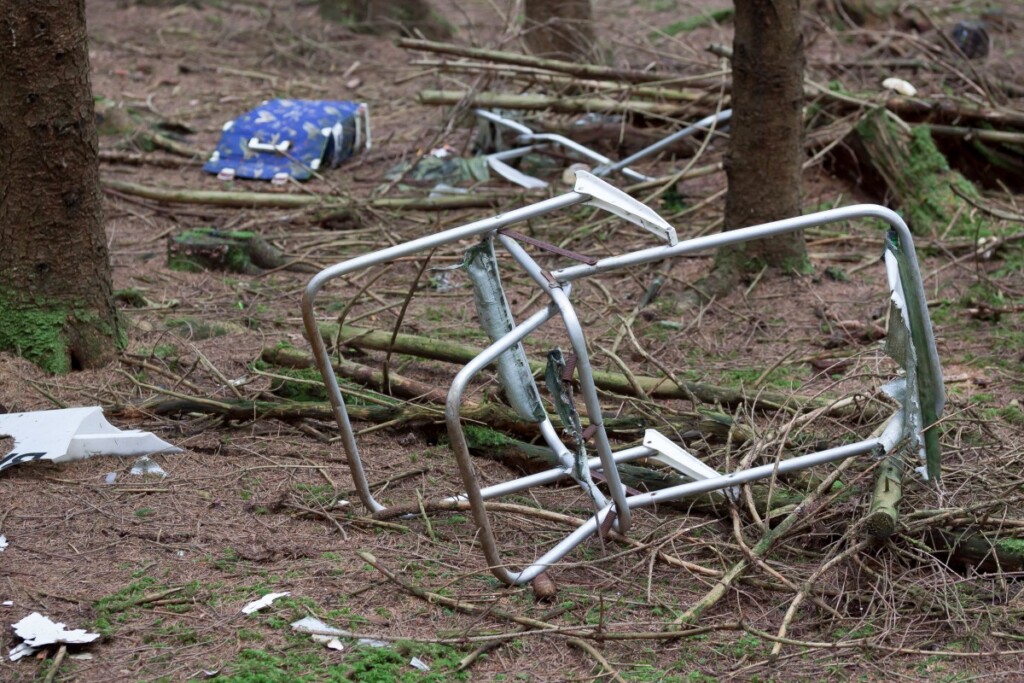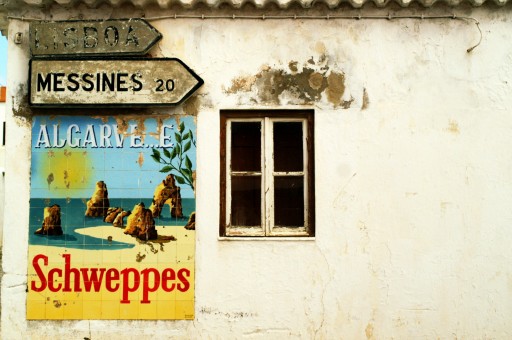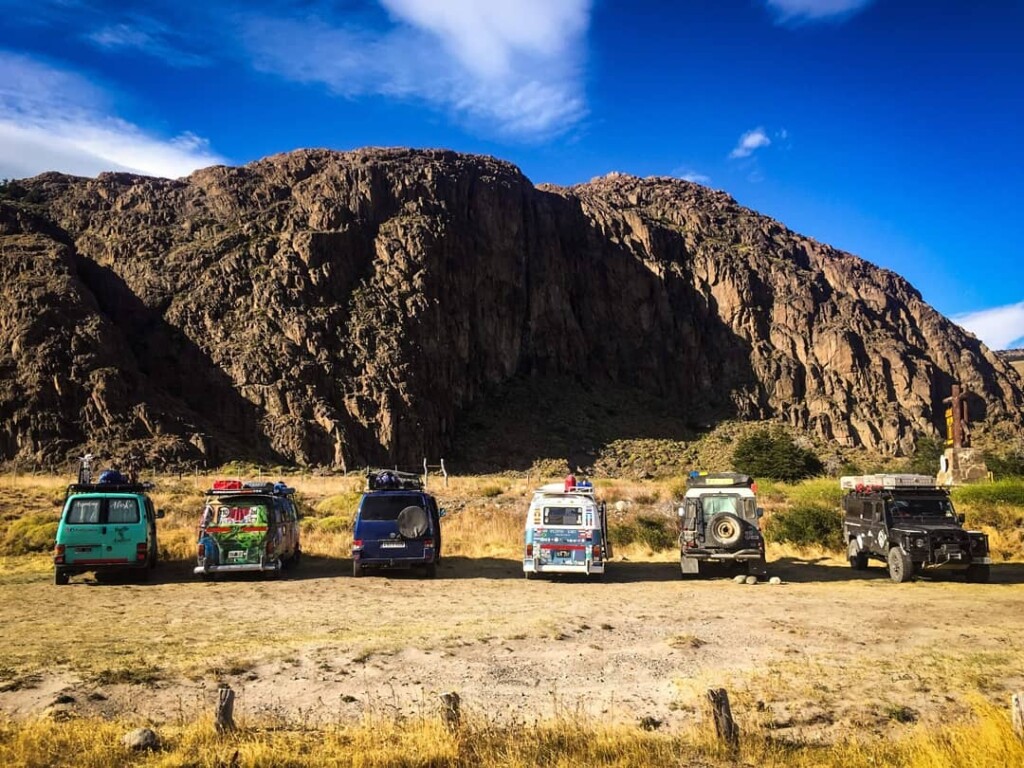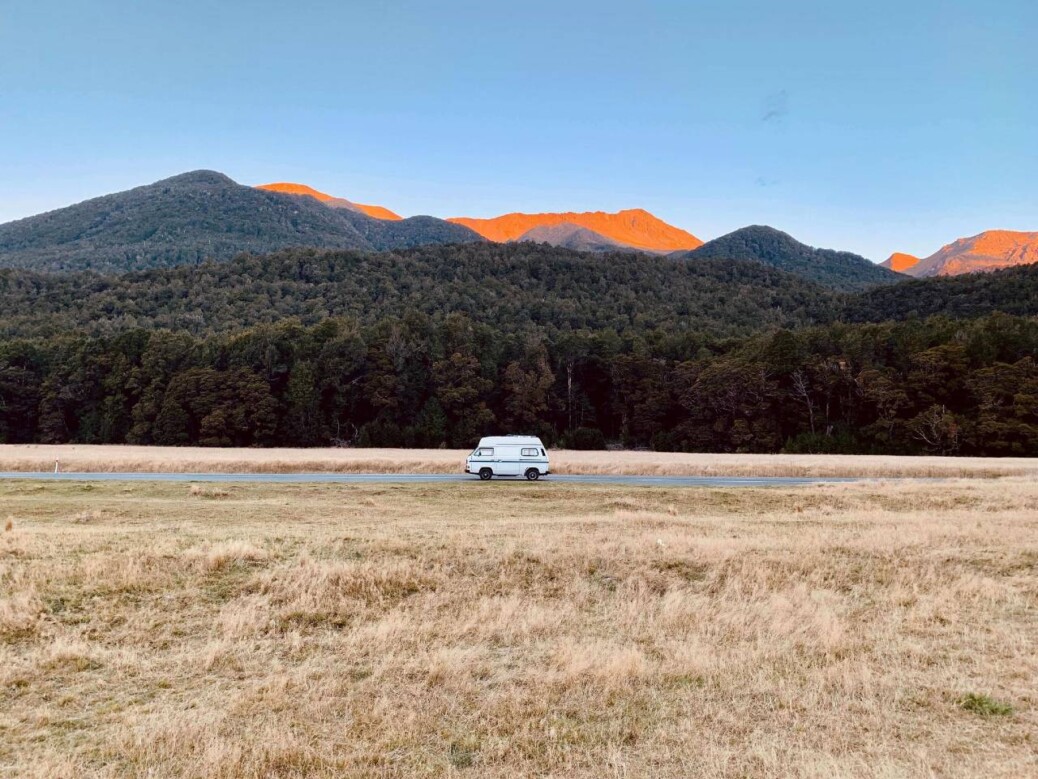What is freedom camping?
Freedom camping – parking overnight anywhere that takes your fancy – is the ultimate dream for us Buslifers. What could be better than driving through the sierras of the vast Portuguese hinterlands, not another soul in sight? Or spotting the perfect viewpoint to pitch up near for a silent night of wild camping? This kind of freedom, peace, and immersion in nature is what we all dream of. While this dream may be or have been, a reality for many within the Buslife community, the concept of boondocking where we please is unfortunately deemed as a privilege, not a right. A privilege that can be withdrawn at the stroke of a pen.



What are the new Portuguese rules for freedom camping?
On 9 January 2021, Portugal enforced a new rule within its highway code. This rule strictly prohibits all types of camping outside of authorized campsites. For Buslifers, this means it’s possible to be fined up to €600 for parking in car parks, on roadsides, and anywhere else that is not a tariffed campsite or Assigned Service Area (ASA) between the hours of 9 pm and 7 am. This may have felt like a hard blow for the Buslifers in Portugal, but the rule has been a long time coming.
For years now, freedom campers have met a lot of resistance from Portuguese locals. They argue campers are not showing due respect to the places they camp, and in turn, to others who wish to enjoy these public parks. In the Algarve, a southern coastal region known for its enviable beaches, this ban has been in place for over 10 years. It was put in place due to overcrowding during the summer months. However, much to the dismay of some disgruntled locals, authorities have not been strictly enforcing these laws. Campers have, therefore, been camping freely without consequence – until now.
Why has freedom camping been such a controversial topic in Portugal?
The right to roam is a concept with innumerable benefits. The chance to immerse more fully into the wondrous nature that we live alongside being one. But why has this nomadic existence outside of everyday society caused such controversy within Portuguese society?
Thanks in part to its (previous) freedom camping access, Portugal became one of the most popular destinations for campers over recent years. Consequently, the country’s most treasured nature spots have become seemingly overrun with campervans, mini buses, and tents. What’s more, it seems freedom campers are not leaving their camping spots in the same condition in which they were found. Litter, campfire ash, and even human waste has been discovered in these popular public camping spots. This destroys natural habitats and leaves other visitors with unpleasant sights and smells.



Freedom campers are disturbing Portuguese residents
Of course, this kind of inconsiderate behaviour is the exception rather than the rule for the freedom camping community. Most are, after all, living off-grid in an act of environmental conscientiousness. Even so, the community has become an unignorable problem for Portuguese residents and authorities. As a result, some Buslifers feel that whilst Portugal was once a blissful place for buses to roam inconsequentially, far from the watchful eyes of society, it is now a place where they are under constant surveillance and scrutiny. Thus, the peaceful nomadic existence Portugal promised the Buslife community has dissipated into one of fear and resentment.
What’s more, the increase in freedom camping tourism in Portugal has left the country feeling a bit short-changed. People have swapped all inclusive beachside hotels in tourist hotspots for free camping spots away from the madding crowds. And instead of splashing out on seafood at a harbourfront restaurant, people are igniting their solar-powered stoves to cook low-budget meals. In fact, two of the fundamental purposes of traveling anywhere in a vehicle is to avoid the tourist experience and live frugally. Whilst this shift away from so-called ‘tourist traps’ into more conscious travel is beneficial to the individual experience, it’s bruising the local economy in parts of Portugal.
The newly introduced freedom camping ban is therefore intended as a road block from tourism-free zones. It has been done in an effort to sustain its tourism economy and its public parks, but will it have the effect it’s hoping for?



Is banning freedom camping the answer?
If a road has been blocked, there must be a diversion in place to prevent those traveling on it from coming to a halt, right? Well, many unhappy campers within the Buslife community have found that Portugal has blocked the road to freedom camping spots without offering a diversion. If they can’t park up on public land, where can they park? There simply isn’t enough infrastructure in place in popular camping areas like the Algarve for the Buslife community to park legally. Therefore, the community may have no choice but to cross the border in search of a parking spot, leaving Portugal and its bruised tourism economy behind.
Even if the necessary infrastructure for legal camping was in place, the question still stands: Why should the entire Buslife community have to compromise their freedom to roam public land because some members can’t keep it tidy? This drastic step to deter freedom campers from damaging Portugal’s public land may not in fact deter them at all. It could just be another factor that is – quite literally – driving them away. One of the greatest pulls to Portugal for Buslifers was its freedom camping policy. Now that it has been withdrawn, only time will tell if the country’s picture-perfect beaches and surf-tastic seas are enough to convince the community to stay, despite the roadblocks they will inevitably face.
Concerns are echoed in the UK
The UK is facing a similar challenge with the introduction of the Police, Crime, Sentencing, and Courts bill 2019-2021. The bill will make it a criminal offense to live in a bus on any private land without the landowner’s consent. IT will also give police more power to remove roadside encampments. This, among the other restrictions the bill places on communities’ freedoms, has been met with heavy scrutiny and resistance. Along with hundreds of protestors, buses and campervans gathered in Bristol in protest during March 2021. However, it wasn’t long before they were dispersed and arrested by riot police. The general public is also responding to the suffocating bill with petitions, which can be signed here, that aim to retract the bill.
Bristol Vehicles for Change, a vehicle dwelling community support organization, condemns the bill. It argues that it is ‘directly targeting communities with protected characteristics under the Equality Act 2010…[and] directly breaches Article 8: the right to home’. Regardless, it ‘works against the positive efforts that have been made to build bridges between communities, authorities, and stakeholders at a local level’. The organization has evidence to suggest that negotiation and better access to land is in fact a more effective way of managing the community, rather than enforcing tighter restrictions.
How can Portugal be more accommodating to Buslifers?
If Portugal wants to continue hosting the community in some capacity, and encourage it to contribute more to local economies, then it needs to be more accommodating. In order to remove campers from its public land, an abundance of legal campsites and ASAs is required. Especially in areas where overcrowding is common. If not, we may have another Algarve situation on our hands.
Although the region banned freedom campers over a decade ago due to overcrowding, it didn’t provide an alternative place to camp. Of course, this caused turmoil for residents and campers alike. Despite it becoming illegal, campers continued to park on public land without consequence. Local residents were then led to siege the public land and to take it back for themselves. As you can imagine, it got slightly ugly. If, however, campers in the Algarve were provided designated camping spots, this siege may never have happened.
Keep camping costs low
To further encourage campers to stay within designated camping spots, campsites should ensure their tariffs remain reasonable. As Buslifers and other kinds of campers often travel on a budget, every expense is thoughtfully considered. And rent is not an expense they’re used to considering. If camping tariffs are too high, campers won’t be willing to pay. Instead, they may either risk staying on public land or prefer to hit the dusty road and find a country that welcomes them with open arms (and freedom camping policies).



What can we do to prevent more free camping bans?
In response to the ban on freedom camping, Buslifers, campers, and other freedom-camping supporters quickly took a stand. A number of petitions have been circling around the masses in a bid to urge the Portuguese government not to advance on the new rule. If these petitions gain enough signatures, the government will be forced to review the rule and hear those opposed to it.
While it may be too late for Portugal, Buslifers still have the right to roam in countries like New Zealand, Norway, and Romania – for now. So how do we continue our peaceful nomadic lifestyle? Well, we must do our part to maintain a strong relationship with the residents and authorities in these countries. If you want to do your part to protect the freedom camping policies in the places you roam, try to practice these three actions:
Respect – have respect for the rules, the public land, and others who wish to enjoy it by ensuring you are not causing disruption during your stay, and leaving no trace of your stay when you leave
Accountability – whenever possible, politely hold other campers accountable for their actions if you notice they are not practicing freedom camping in a respectful way
Advocate – do your part to encourage solidarity and a sense of communal responsibility to public parks within the Buslife community, and encourage outsiders of the community to have a positive outlook on it
Follow in the footsteps of inspiring Buslifers
Whilst some advocate for the community with petitions, others advocate by sharing tips and tricks for responsible Buslife on social media. Instagram account @responsiblevanlife advocates for fellow travelers to be the change they want to see on the road. They discuss zero-waste living, solar energy efficiency, eco-friendly self-conversions, and much, much more in their posts and newsletters. @solarrolla, owned by VW-Bus-enthusiasts Brett and Kira Belan, is a solar electric company specializing in 100% electric vehicle systems that advocates for the mitigation of climate change. The Leave it Better Community (@leaveitbetterco), meanwhile, is advocating for freedom campers to improve their camping spot in some way. Whether it’s picking up others’ trash, or taking care of nearby nature, there’s always a way to care for the environment.
Learn more about how to live a more sustainable buslife in this insightful article. You can also get involved with Leave No Trace Center for Outdoor Ethics to do your part in protecting the environment.



How can we find long-term solutions?
There are so many cool, creative, and effective ways to advocate for responsible freedom camping, and general Buslife. But, in order to truly sustain this lifestyle, we need the countries’ residents and governments on our side. The divide between freedom campers and the residents in Portugal that caused the country to ban freedom camping, proves the importance of maintaining strong and harmonious relationships with other communities.
Banning freedom camping altogether may have been the answer for Portugal. However, with systems in place that allows for greater communication and flexibility between the communities, it doesn’t have to be the fate of any country henceforth. The Buslife community is strong and influential enough to create changes. So, can you imagine what can we achieve when we come together with other communities too?


